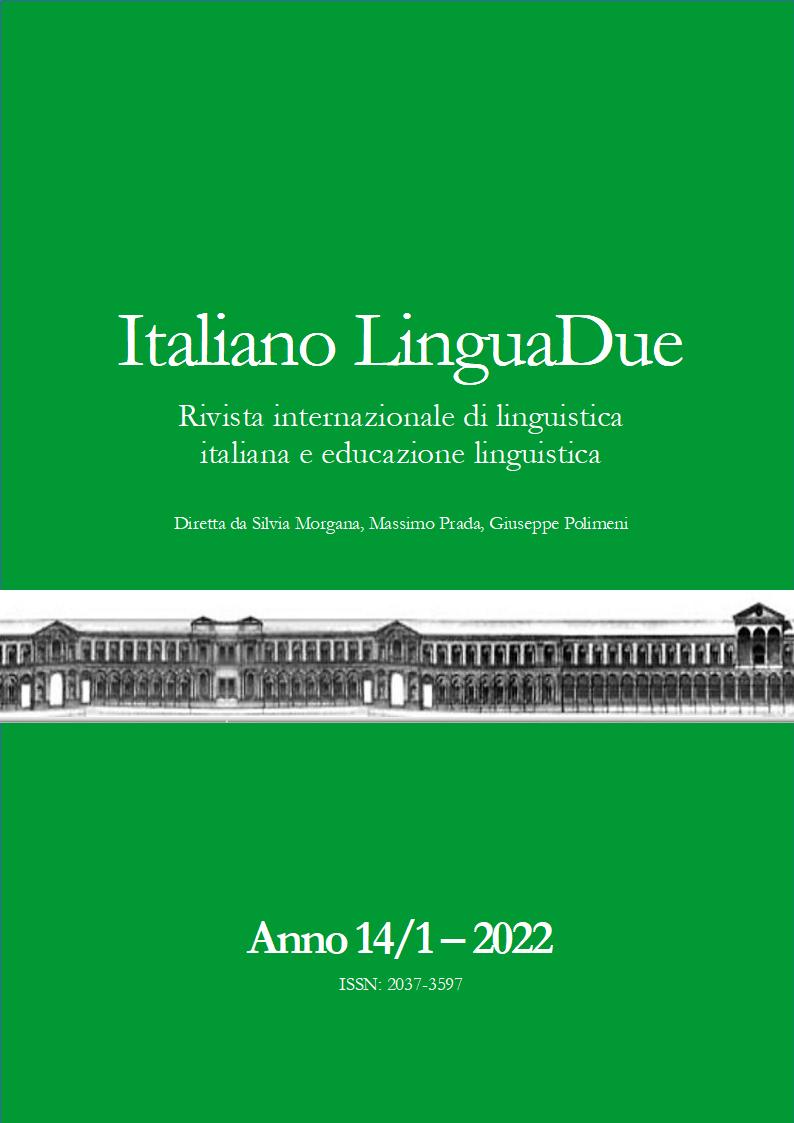UNA NARRAZIONE AUTOBIOGRAFICA RADICATA NELL’ALTERITÀ: LA RAPPRESENTAZIONE LETTERARIA DELL’APPRENDIMENTO LINGUISTICO
DOI:
https://doi.org/10.54103/2037-3597/18326Abstract
Analizzando opere letterarie sia di autori nati in Italia e poi emigrati, sia di scrittori immigrati in Italia, che hanno scelto di scrivere in italiano le proprie opere, l’articolo mostra il rapporto costitutivo tra io e alterità caratteristico dell’autobiografia linguistica. Imparare un’altra lingua significa prima di tutto confrontarsi drasticamente con l’impossibilità del rapporto simbiotico, che l’individuo plurilingue non può più proiettare né sulla lingua madre e le figure familiari, né sul sostituto di una completa identificazione tra individuo e società. La lingua materna diventa così da una parte fantasma che evoca sensi di colpa e un simbolico “matricidio”, dall’altra serbatoio di esperienze che possono confluire nella scrittura e mettere l’individuo in contatto con i propri desideri più profondi. A sua volta, la seconda lingua può diventare oggetto di diverse strategie di elaborazione: dalla distorsione aggressiva, al confronto interculturale, alla maturazione di una competenza metalinguistica e pragmatica.
An autobiographical narrative rooted in otherness: the literary representation of language learning
By analyzing literary works both by authors born in Italy and then emigrated, and by writers immigrated to Italy, who have chosen to write their works in Italian, the article shows the constitutive relationship between self and otherness which is characteristic of linguistic autobiography. Learning another language means first of all dealing with the impossibility of the symbiotic relationship which the multilingual individual can no longer project either on the mother tongue and family figures, or on the substitute of a complete identification between the individual and society. The mother tongue thus becomes on the one hand a ghost that evokes feelings of guilt and a symbolic "matricide", on the other hand a reservoir of experiences that can flow into writing and put the individual in contact with their deepest desires. In turn, the second language can become the object of different processing strategies: from aggressive distortion, to intercultural confrontation, to the maturation of a metalinguistic and pragmatic competence.
Downloads
Dowloads
Pubblicato
Versioni
- 2022-07-28 (2)
- 2022-07-18 (1)




